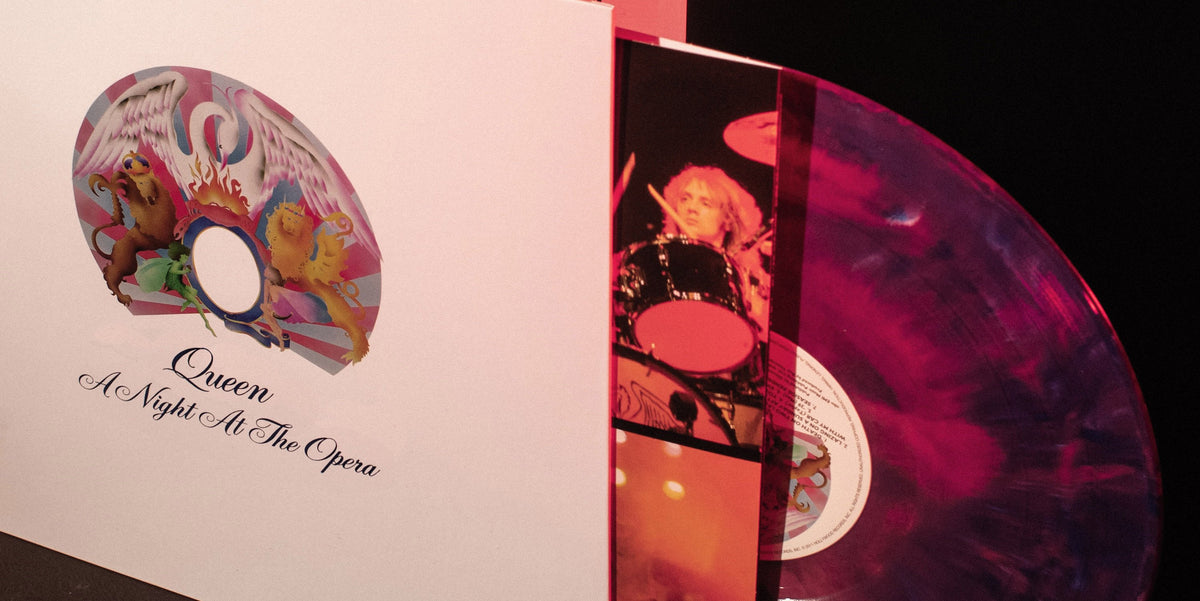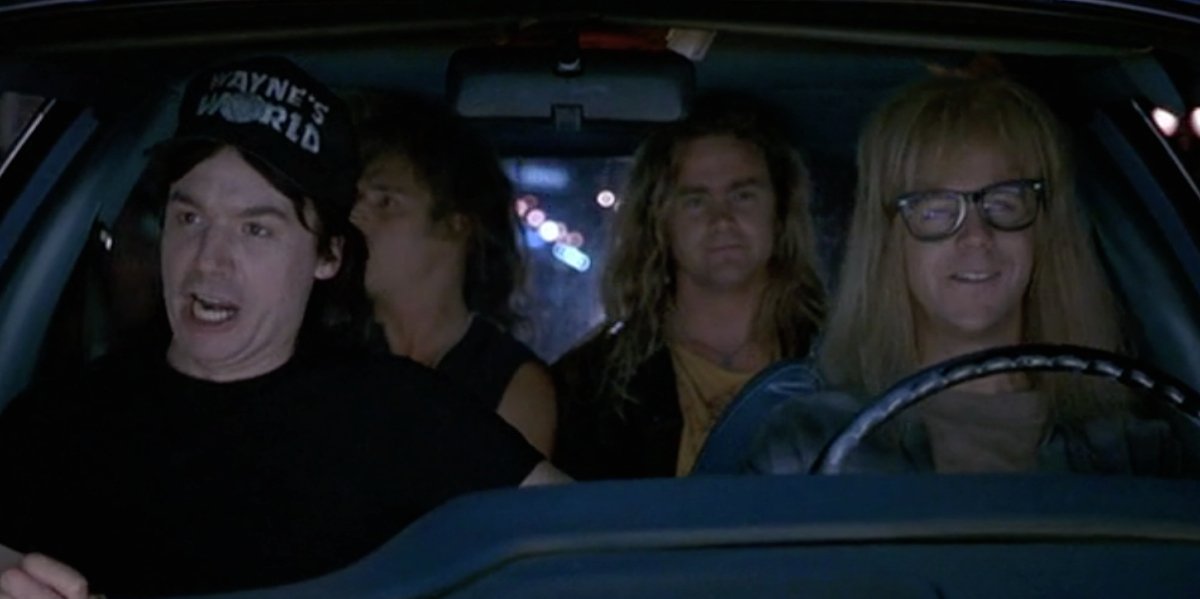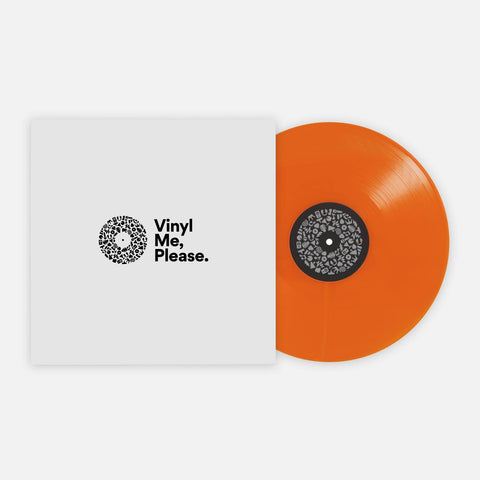If you’re reading this, especially if you’re from the U.K., then statistically you will own at least 14 copies of Queen’s Greatest Hits; it’s the best-selling album of all time in the U.K. (Queen’s Greatest Hits II also makes the top 10). As a lifelong Queen fanatic, what interests me is the very narrow view of the Queen sound this has given birth to, being, as they are, frequently reduced to 20 or 30 songs that everyone knows. That in itself is no small achievement; how many Rolling Stones tracks could the average Joe honestly sing along to from start to finish? Queen’s most famous songs have become part of everyday life, from “Don’t Stop Me Now” coursing through drunken karaoke nights worldwide to “We Will Rock You” clapped and stamped in sports stadiums week in, week out, to “Bohemian Rhapsody” topping every poll ever. But this leaves 15 studio albums, 10 live albums and some 150 songs consigned to the corners of your dad’s record collection. Since the new Freddie Mercury/Queen biopic, Bohemian Rhapsody, comes out in a couple weeks, you’re probably wondering where to start with Queen. Here are the 10 best Queen albums to own on vinyl.

Queen
Queen skeptics often describe their early work as “pantomime Led Zeppelin;” in Queen’s defense their first album took so long to record that by the time it came out it did seem a touch behind the curve. But the origins of a lot of the material on Queen dates back to the music of guitarist Brian May and drummer Roger Taylor’s late ‘60s outfit Smile, long before Freddie or bassist John Deacon had joined (fun fact: he’s credited as Deacon John on the first vinyl pressing because the rest of the band thought it sounded cooler). The sound is very much in the Led Zep / Hendrix world; the odd fairy making a reconnoitre before the fantasy storm of Queen II, while Brian May contributes a rare wah pedal extravaganza on “Great King Rat.” What’s there to see though, especially on “My Fairy King” and “Son and Daughter,” is the nascent harmonizing and guitar orchestration that would define their later sound.

Queen II
If you’ve seen the “Bohemian Rhapsody” video (and who hasn’t) you’ll recognize the iconic front cover. Taken from a Marlene Dietrich-inspired Mick Rock photo shoot, the image has become far more synonymous with Queen than the contents of this extravagant, breakneck prog rock epic. This is the album I wore out as a kid, but not to the extent that Queen themselves wore the tapes clear of carbon in the studio as they stretched the boundaries of what was possible to lay down on vinyl in the early 1970s. With guitars upon guitars and revolutionary multi-part vocal tracks, the sound and range is as enormous as it is gratifying in its pomposity and bravado. The March Of The Black Queen” is the albums most audacious track but Queen II also showcases something sadly underrepresented by their hits: the tender softness of Freddie’s range in lower key ballads like “Nevermore.”

Sheer Heart Attack
The Queen purists’ album of choice, Sheer Heart Attack, shed some of the earlier prog regalia to earn its reputation as Queen’s most out-and-out rock album. The audacious opening track “Brighton Rock” contains probably my favourite moment in all music: the little drum fill and the line “Oh rock of ages, do not crumble, love is breathing still.” Again, Mercury’s gentler range is on show here, in both “Dear Friends” and most especially “Lily Of The Valley.” Behind the scenes, though, Queen were involved in bitter legal battles, having seen very little of the money made by their first true hit “Killer Queen” from this album. All was to change however, with the release of their magnum opus.
*You can buy this title right now in the VMP store.

A Night At The Opera
One song doesn’t really fit on Sheer Heart Attack: It’s the ukulele track “Bring Back That Leroy Brown,” and you can see where it deserved to be once you’ve listened to A Night At The Opera. Though Queen were ignored, ridiculed or dismissed by the U.K. music press, even the most stubborn critic would have to admit that it is a masterpiece of its genre. As an opening track, “Death On Two Legs (Dedicated to…)” is a blood-spitting statement of intent to their previous management. The band installed themselves as company directors and following the album made the Guinness Book Of Records as the highest-paid company executives on earth. A wise move. Musically the album moves from hard rock to light vaudeville and into genuinely terrifying prog. Given the behemoth that “Bohemian Rhapsody” has become, it’s almost strange to hear it on the studio album, placed amongst other mere mortal songs, not least Taylor’s distinctly Alan Partridge/Jeremy Clarkson-esque “I’m In Love With My Car” that shared double A billing with “Bohemian Rhapsody” for the single release. Stand-out deep cuts are “’39” and “The Prophet’s Song,” the latter an epic about Noah’s Ark.
*This album is the Vinyl Me, Please Essentials title for November 2018. Go here to learn more and receive a brand new reissue of the album.

News Of The World
Queen’s answer to the punk movement, this album is a really interesting prospect. In the U.K. in the late ’70s, there was a backlash against the lavish decadence of prog and glam rock, which no longer served the tastes of Britain’s angry youth. Legend has it that Queen recorded this album in the same studios that the Sex Pistols were using. Sid Vicious barged in and asked Freddie if he was still “bringing ballet to the masses,” to which Freddie replied, “Well Mr. Ferocious, we’re doing our best!” Man, you’ve gotta love him!
However, on the one hand Queen’s answer to punk is to stick two fingers up and do what they did even bigger, better and more anthemic. You couldn’t pick a more confident opening two tracks than “We Will Rock You” and “We Are The Champions” (both titles, perhaps, further responses to Sid). That said, they did strip down their sound; it’s barer and as a result, more punky. The track “Sheer Heart Attack,” though left over from sessions for the album of the same name, does seem to want to have its cake and eat it, too, a parody of punk so close as to border on imitation. For me the real joy is in the piano, bass and tear-jerking tenderness of “All Dead, All Dead” (amazingly about May’s cat) and “My Melancholy Blues,” a lounge-jazz gem that is one of my all-time-favourite Queen songs, and an absolute bastard to sing. The album also includes two classic Queen hits in disguise, “Spread Your Wings” and “It’s Late,” perhaps overshadowed by the opening combo of soon-to-be football anthems that really put them on the map in America.

The Game
“No Synths” had adorned the liner notes of every Queen album up until 1980, and they broke their oath on the album where some of early Queen aficionados start to lose interest. I call bullshit. So very few ’60s and ’70s artists came out of the ’80s well, and not only did Queen survive the various and often baffling fashions of ’80s music and culture, it was the decade they dominated. Yes, I’d take their ’70s output over their ’80s any day, but that’s not to say there’s not magic to be found here. For the band, it was in these recording sessions where life offstage started to take its toll. Recorded in Musicland, Mercury and the rest dived headlong into Munich’s burgeoning club scene, and drink and drugs threatened to spin the band out of control. Indeed, stresses and strains remained until a mixture of Mercury’s diagnosis and their appearance at Live Aid brought them closer together than ever before. Again, though, it’s not the songs you could argue were chasing the trends that stand out for me, it’s the straight up ballads “Save Me” and “Play The Game.” Though deep-cut seekers should head for “Dragon Attack” with its impossible drum fill and May-penned ballad “Sail Away Sweet Sister.” One footnote: I think on The Game, you begin to see a habit of the band allowing each musician to have their moments on each song. There aren’t such clear cut “Freddie” or “Brian” tracks, and the stand-out hit that pushed them supersonic in America, “Another One Bites The Dust,” was written by Deacon. They’re playing much more as a unit, which continued throughout the ’80s.

Hot Space
This is undoubtedly a controversial choice. Queen’s 1982 “misstep” is all over the place, and critics hate it. Not only critics, but most of the band themselves. But as someone who is as interested as much in the history of the band as their actual output, it’s perhaps the most interesting album. And even the album they themselves hated has got “Under Pressure” on it, a remarkable collaboration that never fails to send a shiver down my spine. So, what’s going on here? Well, even as the leading Queen-apologist, I have to admit they’re chasing fashions as opposed to creating them. The popularity of “Another One Bites The Dust” led them to dip their toes further into funk and disco than perhaps they should. But more so I would suggest there is a Freddie Mercury Solo album jostling for supremacy here. And you can understand why.
For perhaps the first time in his life he had found bars and clubs in bigger cities where, maybe for the first time in modern history, gay men could socialize, relax and be themselves. The album is really front-loaded with songs about sex, “Staying Power” (“blow baby blow let’s get down and go go”) and “Body Language” (“Sexy body, sexy sexy body”) may well have made sense in clubs like Heaven or The Mineshaft, but you can feel the rest of the band is slightly uncomfortable as they try to add the rock where they can to bring it into a more familiar Queen sound. May does his best with the harder-edged “Put Out the Fire,” but neither can live while the other survives. There’s also a tribute song to John Lennon, a song called “Calling All Girls” and it finishes with “Under Pressure,” one of the best songs of the last 40 years. What’s going on?! All this, for me, makes it a must-have, and I’ve got a real soft spot for “Cool Cat.”

Innuendo
I’m often amazed that Innuendo doesn’t feature in more “Best Of” lists. For me, it’s close to a masterpiece and in terms of what the band were going through at the time it is a monumental achievement. “Innuendo” itself and “The Show Must Go On” are so audacious and unique — as songs, their landscape is immense. The former is the ninth-longest song to ever make No. 1, and only Queen’s third-ever No. 1 at the time of its release. If The Miracle was an album recorded on borrowed time, Innuendo is an album about borrowed time. For me it’s a hugely emotional listen, knowing how ill Mercury was when he recorded it, and the bittersweet magic of those videos for “Innuendo,” “I’m Going Slightly Mad” and “These Are The Days Of Our Lives,” especially. To think that just five years previously, Freddie, now heavily made up, thin and delicate, had commanded the stage at Wembley is just heartbreaking. That said, his voice is never better, just listen to “Don’t Try So Hard”; man, what a set of pipes! It was also the album that was playing in my mum’s kitchen when I first discovered Queen around the time Freddie died. I was nine years old and had discovered a band who had already slipped away from me; my relationship with them started with loss, and as the years went by my passion for them increased, as the music itself moved further and further into the past. I think it’s the strongest album since A Night At The Opera. And in context, for me, it has to be their best.

Live Killers
Until relatively recently, Queen’s biggest asset, their live performances, were served quite poorly by official releases. Now, luckily, there’s a huge amount to explore, especially the early gigs of Live at The Rainbow and A Night At The Odeon, which are available in big, bonus-packed box sets. The mid-’80s is now served well on DVD with Queen On Fire: Live At The Milton Keynes Bowl (check out the version of “Somebody To Love” on there) and Queen Rock Montreal. But I was always a big fan of Live Killers. Until 1986, it was their only live release (unless you count the original Live At The Rainbow VHS box set I drooled over as a 10-year-old but, alas, could not afford). It was panned on its original release and for the life of me I don’t know why. May and Taylor have both gone on record bemoaning the recording, release and editing process for Live Killers. In one particularly self-lacerating interview from 1981, May said, “Sometimes the concerts sound very good, but when you listen to the recording you want to kill yourself because of how awful everything sounds.” Believe you me, as someone who has watched back the edit of his own stand-up gigs recorded on film, I know exactly how he feels. But trying to capture the exact feeling of a live gig, on tape or on film, is impossible, and the people who weren’t there never know what wasn’t captured, so hopefully new listeners will find gem after gem in this. Especially the fast version of “We Will Rock You,” the extended “Don’t Stop Me Know,” the incredible drum triplets on “I’m In Love With My Car” and my favourite version of “’39.”

Live At Wembley ’86
What a man, what a gig, what a moment in time. For the full effect, watch it in HD with a decent sound system. Live At Wembley ’86 is the world’s greatest live act at the absolute height of their powers. Mercury dominates the crowd, one of the largest ever assembled in the U.K. at the time, and gives a master class in singing to Row Z, making sure every single person there felt they were just a couple of feet away. I’ve met people who were there, been sent ticket stubs, programs and photos by kind listeners to my radio show. If I could travel back in time, oh man oh man oh man. I’d be there in a heartbeat.
Related Articles
Join the Club!
Join Now, Starting at $36Pages











